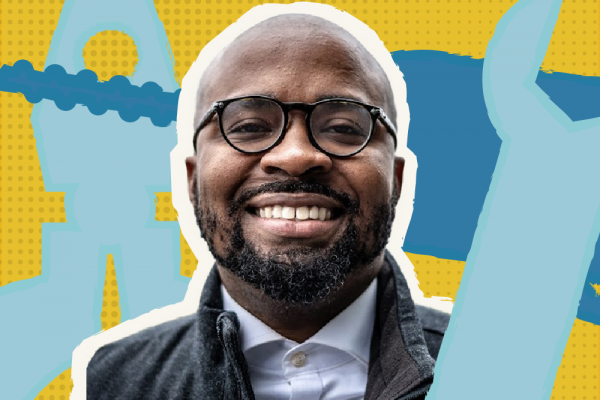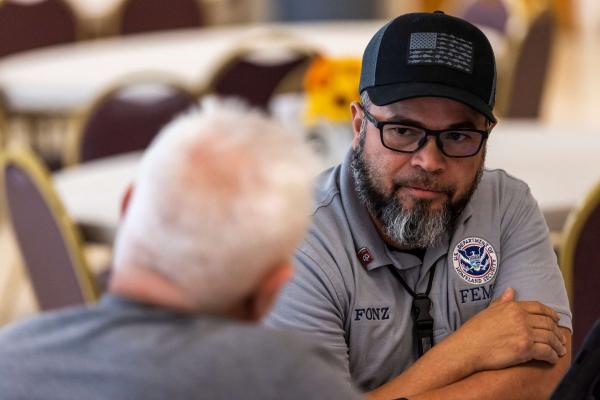The right to be counted is at the foundation of our faith and our democracy. In Matthew 18:12–14) and Luke (15:3–7) Jesus tells the iconic parable about the lost sheep. A man, who owns 100 sheep, goes to great lengths to find one missing sheep out of the 100 and when he finally recovers the lost sheep, he is happier about the one sheep that is found than the 99 who are safe. The parable speaks volumes about the degree to which God shows a particular concern and attention around anyone who is lost or falls in harm way. In a similar vein, we should be alarmed and equally committed when one person is miscounted or disregarded in our society. Our democracy loses its integrity and legitimacy when people and communities are made invisible and further marginalized by undercounting in the census.
The question of who is counted and valued has been a highly contested one that has haunted American history. From the three-fifths compromise to a series of painful and exclusionary immigration laws that have dehumanized and excluded women, Catholics, and Chinese-Americans, to name just a few, from being fully counted and exercising their rights.
2020 is of paramount importance because it is both an election year and a census year. Under the Constitution, the population count is used to determine the number seats in the U.S. House of Representatives and how many electoral votes each of the 50 states will have for the following decade. Census population numbers also are used to draw congressional district lines and are also used to draw state and local voting districts. In addition to providing the basis for fair voting representation, census data plays a key role in the implementation and enforcement of the nation’s civil rights laws and influences the allocation of more than $600 billion in federal government resources that goes to states, localities, and families every year, including federal funding for health care, education, housing, food and income security, rural access to broadband, and other vital services. The census also guides private-sector investment decisions on where to invest in job creation, new facilities, and marketing.
Counting every person in the United States is a massive and complex undertaking even under the best conditions. Ensuring a fair, inclusive, and accurate count requires careful planning, continual updating of address information, advance testing of procedures and technology, and the hiring, training, and oversight of a large temporary workforce to gather and process the data.
Sadly, some groups of people have historically proven to be challenging to count accurately, particularly people of color, urban and rural low-income households, and young children. The Census Bureau classifies these communities, as well as immigrant, limited-English proficient, and single-parent households, as “hard-to-count.” Accurately enumerating these communities takes a focused effort.
For example, the African-American population has been historically undercounted in the decennial census, disadvantaging their families, communities, and neighborhoods. In fact the 2010 Census undercounted the African-American population by more than 800,000 and approximately 7 percent of young African-American children were overlooked by the 2010 Census, roughly twice the rate for young non-Hispanic white children.
All Americans have a stake in fair political representation and in the effective use of tax dollars to meet community and national needs. But those with the most to lose – people who are members of disadvantaged or marginalized communities – are at greatest risk of being uncounted. As a result, their communities will not receive the political influence and resources they deserve and need.
Unfortunately the importance of the census can easily escape our attention, in part because it only takes place every 10 years and is often treated as purely bureaucratic process. However, the census has become increasingly politicized and now carries long-lasting and even life-and-death consequences for whole communities and groups.
And we need to pay attention, particularly because the census is treacherously off track. Census officials and immigration advocates have voiced deep concerns about the failure to engage citizens without internet access, as well as the underfunding of census workers and offices. The Census Bureau plans to halve the number of its local offices across the country and reduce the number of enumerators — workers who follow up with people who don’t respond to census requests.
To make matters worse, the Trump administration wants to add a question to the 2020 Census asking respondents whether or not they are U.S. citizens for the first time in the nation’s history. While the Supreme Court today at least temporarily prevented this, the administration may still push to get the question in. There are some very basic reasons why this is a terrible and sinister idea from a practical perspective, a justice perspective, and a moral perspective. First, the census’ mandate isn’t to count how many citizens there are, it’s to count how many people — of all nationalities and immigration statuses — currently live in the United States. The administration has disingenuously argued that it’s seeking this data in order to help it enforce the Voting Rights Act, which is absurd on its face and is further belied by evidence that recently came to light that the Voting Rights Act argument is merely a pretext. It’s on this basis the Court rejected it. The long-suspected true motivation was seemingly confirmed by the writings of a prominent architect of adding the citizenship question, who argued that this question would be “advantageous to Republicans and non-Hispanic whites,” as he put it. In other words the addition of the question would further institutionalize and advantage white power and voters.
There is immense concern that communities with high immigrant populations — which already tend to be underserved by the government — will suffer from widespread undercounting in the upcoming census, and that this would be significantly exacerbated by the presence of a citizenship question. Families containing undocumented people, who may already be justifiably wary of providing information to the federal government, would be even less likely to participate in a census in which they are explicitly asked whether or not they are citizens.
Unfortunately, the damage has already been done, despite the Supreme Court’s decision today. As professor and expert on demographic history Margo Anderson told FiveThirtyEight, “Regardless of how the case turns out, some damage to the census’s credibility as a nonpartisan, scientific tally may already have been done. [B]y drawing the census into the broader debate about immigration, the Trump administration may have already helped stoke mistrust in the final result — even if the citizenship question never ends up on a census form.”
That’s why it is imperative for faith leaders to raise their voices in support of needed leadership and adequate resources for the 2020 Census and work to ensure that every member of their churches and communities is counted. You can also can urge state and local elected officials to form Complete Count Committees — with representation from a broad cross-section of the community — to supplement the Census Bureau’s own outreach and promotion activities. Looking ahead, organizations can become official census partners. More than 250,000 organizations — from large national organizations and companies to community-based groups, faith institutions, and social clubs — were part of the 2010 Census Partnership Program. Partners educate their own members, constituents, and customers about the importance of completing the census form and serve as “trusted messengers” to help ease concerns about data confidentiality.
The best way for local communities to help ensure a complete census count where they live will vary by state and by community, but Georgia offers a good example of how it can be done. Georgia faces particular challenges in getting a full count of its residents due to the large population of people of color, who have historically not been fully and fairly counted, and the size of Georgia’s rural population. With so much at stake, Stacey Abrams, who ran for governor in 2018, has launched Fair Count, an organization dedicated to helping the many local Complete Count Committees work together in sharing resources and best practices in order to help the state as a whole count its historically undercounted populations as thoroughly as possible.
Now is the time to ensure that every person is counted. You can learn more about how faith leaders and communities are getting involved at by downloading this toolkit.
Census data are a vital in overcoming the nation’s legacy of slavery, racism, and discrimination. The collection of accurate, comprehensive race and ethnicity data – as well as data on gender, age, and household composition in the census is central to implementing, monitoring, and evaluating many civil rights laws and policies, from fair political representation, protection of voting rights, and voting reforms, to equal opportunity and access across all economic and social sectors of society, including housing, education, health care, and the job market. The data provide evidence of disparate impact of governmental and private sector policies and practices, and assist civil and business leaders in devising solutions that promote equality of opportunity and address the needs of a diverse population.
We cannot afford to let this administration or federal judges determine the success or failure of next year’s census. If we do, the result for already underserved communities could well be catastrophic and long-lasting. We need to mobilize broad coalitions in communities all over the country to make sure that we’re not leaving any of God’s children behind.
Got something to say about what you're reading? We value your feedback!







